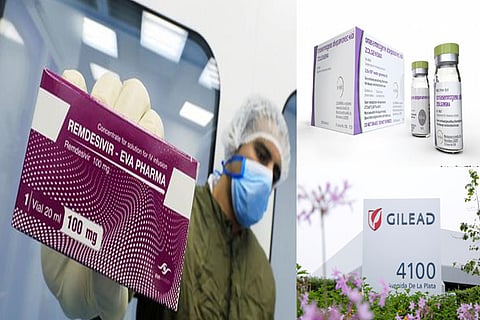

Chennai
The manufacturer argues that this is a reasonable price considering that without it, it costs between 2.5 and 4 million euros to treat the degenerative disease over a lifetime. Gilead Sciences, which has developed remdesivir, takes a similar line of argument, saying that the drug, which is viewed as a promising tool in the fight against COVID-19, could save costs in the long run.
In an open letter earlier this week, Daniel O’Day, chairman and CEO of Gilead Sciences, wrote: “Taking the example of the US, earlier hospital discharge would result in hospital savings of approximately $12,000 per patient. Even just considering these immediate savings to the healthcare system alone, we can see the potential value that remdesivir provides.”
“We have decided to price remdesivir well below this value,” he continued. “To ensure broad and equitable access at a time of urgent global need, we have set a price for governments of developed countries of $390 per vial. Based on current treatment patterns, the vast majority of patients are expected to receive a 5-day treatment course using 6 vials of remdesivir, which equates to $2,340 per patient.”
What is fair drug pricing?
The editor of the German specialist magazine Arznei-Telegramm, Wolfgang Becker-Bruser, is not convinced. He said that the costs of treating COVID-19 without remdesivir had been calculated at random. “There is an attempt to give the impression that the price is fair,” he said. “However, if there wasn’t a pandemic and so much public attention they might have set the price much higher.” The Association of Research-Based Pharmaceutical Companies (vfa) refused to comment. “The vfa does not comment on the pricing schemes of individual companies,” it said in a statement. But in the past, the vfa has called on the pharmaceuticals sector to show responsibility with regard to consumers and demanded that affordable medicine and vaccines be made available. An analysis by British researchers cited in the Germany weekly Der Spiegel came to the conclusion that it probably cost about 8 euros to produce one dose of remdesivir. However, it is normal for the sale price to be much higher than the production price, considering companies invest huge sums into development.
Gilead Sciences claims that it invested about $1 bn into remdesivir. This is actually at the lower end of the vfa’s scale for developing a new drug. The association said that companies tended to invest $1 to 1.6 billion in a new product. For Wolfgang Becker-Bruser, this is “fantasy.” “If the development costs are calculated to be so high then it is easy to demand higher prices,” he said. For Alexander Nuyken, a pharmaceuticals expert at the consulting firm EY, there is a reason that development costs are so high: they encompass the risk of failure. “It has to be possible to add a premium for the risks incurred from the development of a drug to its approval,” he said.
According to media reports, the US has already secured the entire stock of projected production for July and 90% for August. Germany, too, has apparently secured supplies. Health Minister Jens Spahn has been applying pressure. He said that he expected “Germany and Europe to have access to supplies to such a drug.” The British government has also said that it has enough reserves.
So far, remdesivir has not been fully approved in any country and there has not been enough research into how effective it really is against the novel coronavirus. But apart from Dexamethason, it is the drug that seems to have the most potential for treating patients with SARS-CoV-2 and limiting the disease’s course.
— This article has been provided by Deutsche Welle
Visit news.dtnext.in to explore our interactive epaper!
Download the DT Next app for more exciting features!
Click here for iOS
Click here for Android